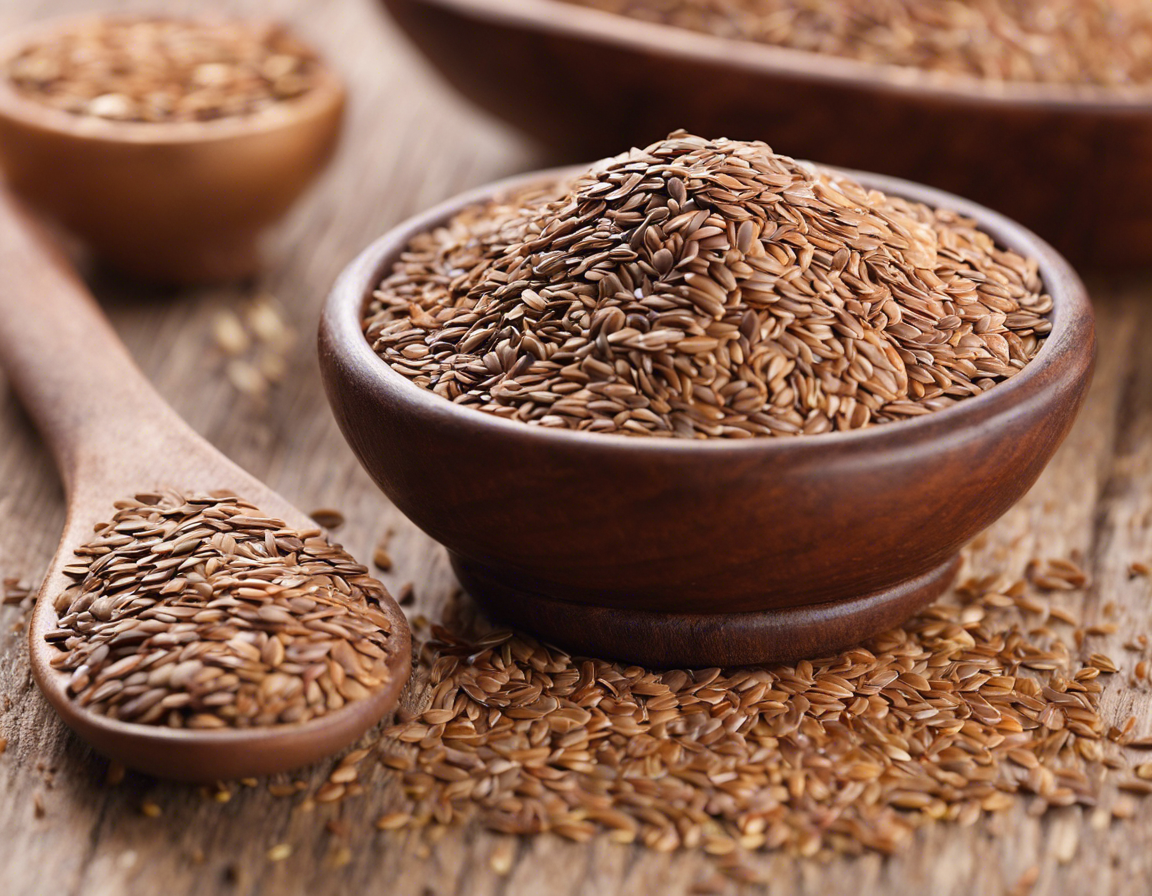Exploring Flaxseed: Its Benefits and Uses in Hindi – A Complete Guide
Flaxseeds, known as “अलसी” in Hindi, are tiny powerhouses of nutrition packed with essential nutrients that offer a wide range of health benefits. In this comprehensive guide, we will delve into the various aspects of flaxseeds, including their nutritional profile, health benefits, culinary uses, and potential side effects. From their rich omega-3 fatty acids content to their ability to improve heart health and aid in digestion, flaxseeds are a versatile ingredient that can easily be incorporated into your daily diet to boost overall health and well-being.
Nutritional Profile of Flaxseeds:
Flaxseeds are a rich source of omega-3 fatty acids, fiber, protein, antioxidants, and various essential vitamins and minerals. A 1-ounce (28 grams) serving of flaxseeds provides:
- Calories: 150
- Protein: 5 grams
- Fiber: 8 grams
- Omega-3 fatty acids: 6388 mg
- Vitamin B1, B6, and Folate
- Magnesium, Phosphorus, and Copper
Health Benefits of Flaxseeds:
1. Heart Health:
Flaxseeds are known for their ability to lower cholesterol levels, reduce blood pressure, and prevent the risk of heart diseases. The omega-3 fatty acids present in flaxseeds help reduce inflammation and improve heart health.
2. Digestive Health:
The high fiber content in flaxseeds promotes healthy digestion, prevents constipation, and aids in maintaining gut health. Flaxseeds act as a natural laxative and can help alleviate digestive issues.
3. Weight Management:
Including flaxseeds in your diet can aid in weight loss and weight management. The combination of fiber, protein, and healthy fats keeps you feeling full for longer periods, reducing overall calorie intake.
4. Skin and Hair Health:
The antioxidants and omega-3 fatty acids in flaxseeds help improve skin elasticity, reduce inflammation, and promote healthy hair growth. Regular consumption of flaxseeds can lead to glowing skin and lustrous hair.
5. Hormonal Balance:
Flaxseeds are rich in lignans, which are plant compounds that have estrogenic properties. These compounds help regulate hormone levels in the body, particularly in women during menopause.
Culinary Uses of Flaxseeds:
Flaxseeds have a mild, nutty flavor, making them a versatile ingredient that can be incorporated into various dishes. Here are some ways to include flaxseeds in your diet:
- Ground Flaxseeds: Add ground flaxseeds to smoothies, yogurt, oatmeal, and baked goods for an extra nutritional boost.
- Flaxseed Oil: Drizzle flaxseed oil over salads or use it in salad dressings for a healthy dose of omega-3 fatty acids.
- Flaxseed Meal: Use flaxseed meal as an egg substitute in vegan baking recipes or as a coating for meats and vegetables.
Potential Side Effects of Flaxseeds:
While flaxseeds offer numerous health benefits, it’s essential to consume them in moderation. Some potential side effects of consuming flaxseeds include:
- Digestive Issues: Overconsumption of flaxseeds can cause digestive discomfort, such as bloating, gas, and diarrhea.
- Allergic Reactions: Some individuals may be allergic to flaxseeds and may experience allergic reactions like hives, itching, or swelling.
FAQs about Flaxseeds:
1. Can flaxseeds help lower cholesterol levels?
Yes, flaxseeds are rich in soluble fiber and omega-3 fatty acids, which have been shown to lower LDL (bad) cholesterol levels.
2. How should flaxseeds be stored to maintain their freshness?
Flaxseeds should be stored in an airtight container in the refrigerator to prevent them from going rancid due to their high oil content.
3. Can flaxseeds be consumed whole, or do they need to be ground?
To fully reap the nutritional benefits of flaxseeds, it is recommended to consume them ground as the whole seeds may pass through the digestive tract undigested.
4. Are there any specific precautions to consider before consuming flaxseeds regularly?
Individuals taking blood-thinning medications or with certain medical conditions should consult with a healthcare provider before adding flaxseeds to their diet due to their potential blood-thinning effects.
5. Can flaxseeds be used as a substitute for eggs in baking recipes?
Yes, flaxseeds can be used as an egg substitute by mixing ground flaxseeds with water to form a gel-like consistency, which acts as a binding agent in baked goods.
In Conclusion:
Flaxseeds are a nutritional powerhouse that can be easily incorporated into your daily diet to enhance overall health and well-being. From heart health to digestive support and beyond, the benefits of flaxseeds are numerous. By exploring the various culinary uses and understanding the potential side effects, you can make the most of this superfood in your quest for a healthier lifestyle. So, don’t hesitate to sprinkle some अलसी into your meals and reap the incredible benefits it has to offer.

Post Comment